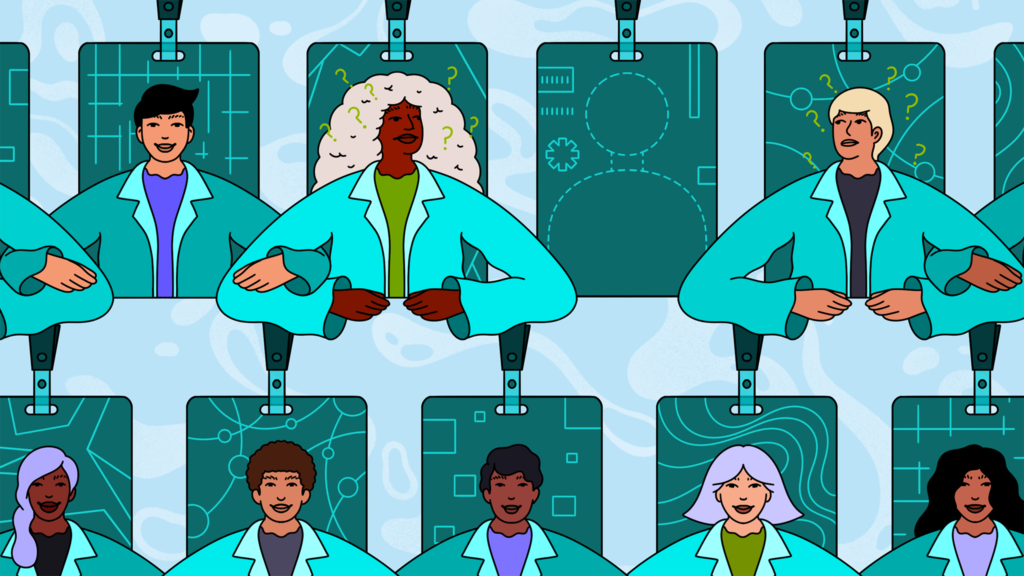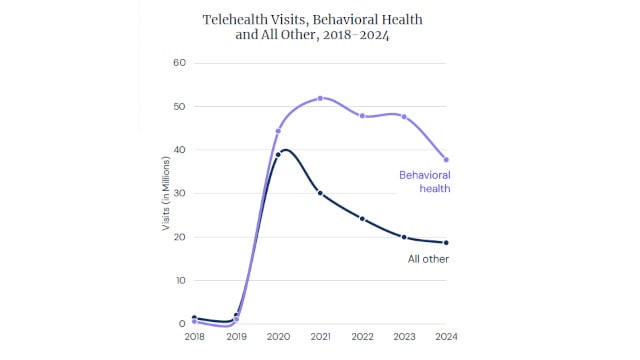Your guide to how tech is transforming health care and the life sciences
| Health Tech Correspondent |
|
|
Good morning health tech readers! Today, an in-depth look at how telehealth companies got obsessed with drugs. Plus: fresh data on how the rest of telehealth is doing. Reach me: mario.aguilar@statnews.com |
|
|
Virtual Rx The doctors fueling telehealth's rise  Thumỹ Phan for STAT Thumỹ Phan for STAT
Katie Palmer this week published the first two stories in a series on how telehealth is driving the consumerization of drugs. - Today, Katie offers a analysis about "51ers," or people with medical licenses in all 50 states plus Washington D.C. These physicians have been essential to the growth of national telehealth business and often serve as practice owners for these companies. By last year, 172 doctors had licenses in all fifty states, compared to just nine in 2016. These doctors sometimes power telehealth practices from several different companies, leading to some unusual situations, Katie reports. Read the whole story here.
- In story Monday, Katie traces the origins of telehealth's obsession with hocking drugs from its beginnings with erectile dysfunction pills to the current boom in GLP-1s. The story includes some forgotten history behind little-known but important players like UpScript, and unpacks the bubbling conflict between drugmakers like Eli Lilly and Novo Nordisk and direct-to-consumer telehealth companies marketing compounded versions of their blockbuster obesity drugs. Read more here.
data Telehealth use slips again 
Direct-to-consumer telehealth to get drugs may be on the rise, but the use of telehealth in more traditional health care continues to slip from pandemic highs, according to an analysis of insurance claims from Trilliant Health. Though telehealth use skyrocketed during the pandemic when it was the only option, volumes have come down since. Behavioral health remains a virtual care use case with staying power. The chart above comes from Trilliant's always interesting annual report on health care trends.
personnel file United taps Duke scientist to lead AI UnitedHealth Group tapped Duke AI expert Michael Pencina to be its new chief AI officer, Casey Ross reports. Pencina has in the past pressed for a national registry of AI tools but has taken a measured approach to industry oversight. The hire comes amid the surging use of AI by the health organization which includes a large insurer: During an investor meeting last year former CEO Andrew Witty touted huge productivity gains from the company using AI in 500 different tasks. Read more here |
|
Policy HHS leaders blast CHAI In an editorial, deputy health secretary Jim O'Neill and FDA head Marty Makary took shots at the Coalition for Health AI, an industry group with close ties to big tech, major health organizations, and startups. They accuse the group of working with the Biden administration to advance policies on behalf of "a self-interested group of industry insiders" and mock the past administration for "publishing lengthy frameworks and socializing at conferences." The Trump administration, conversely, "is putting technology into action — piloting before deploying, learning fast, and constantly iterating." They point to the FDA's rapid launch of its Elsa tool as an example of the new approach. If anybody wants to explain the real reason HHS is spending so much energy on CHAI, please reach out.
Health tech news roundup |
|
Check out more exclusive coverage with a STAT+ subscription | Read premium in-depth biotech, pharma, policy, and life science coverage and analysis with all of our STAT+ articles. |
|
What we're reading - This startup wants to put its brain-computer interface in the Apple Vision Pro, Wired
- They advised federal health agencies on the ethics and impact of scientific research. They're no longer wanted, STAT
|
|
Thanks for reading! More next time - Mario Mario Aguilar covers how technology is transforming health care. He is based in New York. |
| STAT, 1 Exchange Place, Boston, MA | ©2025, All Rights Reserved. | |
|



No comments